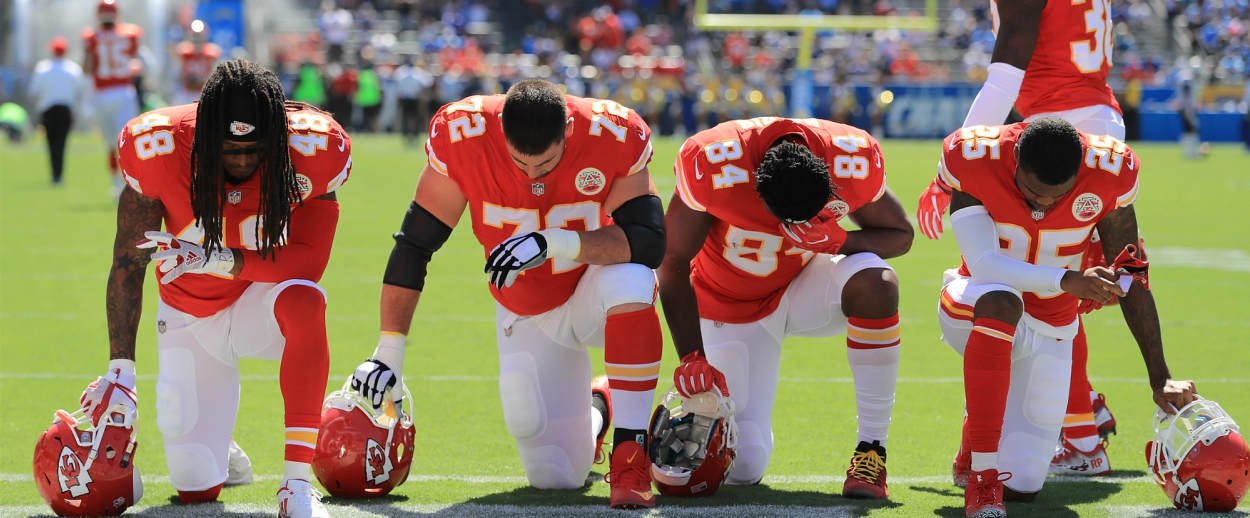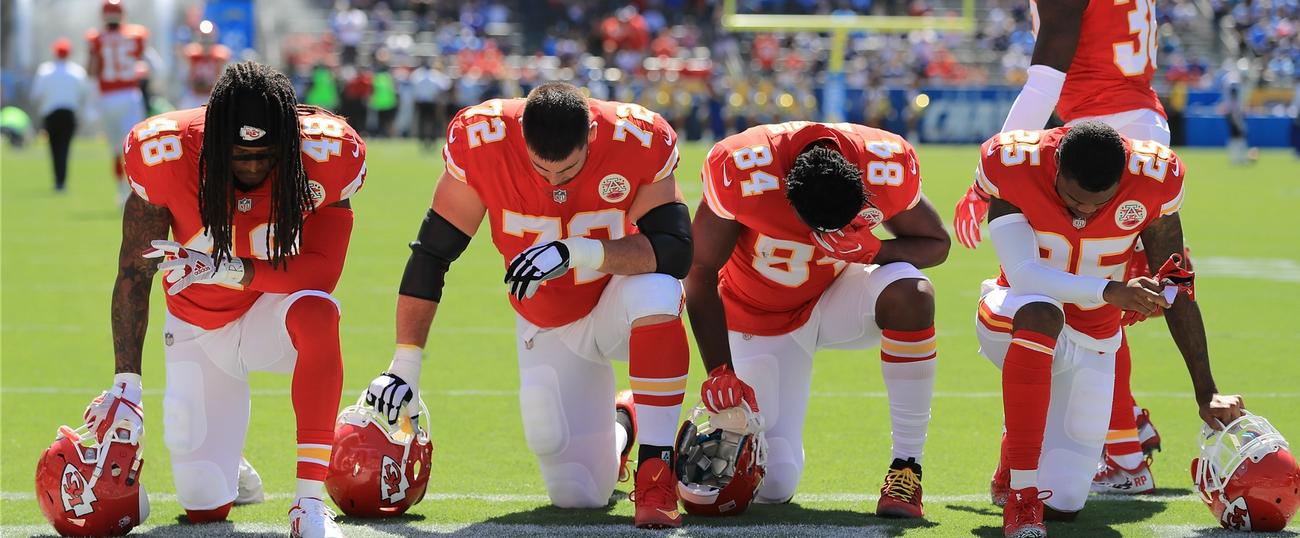To Kneel Or Not to Kneel? Judaism Has an Answer.
What the NFL’s protesters can learn from the ancient ‘aleinu’ prayer.




When morning dawned on Sunday, no one really knew how the day’s football protests would unfold. Sure, those taking a knee knew that they were sticking a finger in the president’s eye, but they were probably less sure about how it would play with their bosses and fans. The same is true of players who didn’t really feel like taking a stand. “Will it cost me anything in terms of respect and affection?” they perhaps thought. “Will my teammates feel let down?”
The day’s power stemmed, in no small measure, from such uncertainties, and whatever the future may hold for the Take a Knee movement, what is without question is that things will never again be as fresh or as unpredictable as they were this past weekend.
It’s an interesting coincidence that Sunday’s games came between Rosh Hashanah and Yom Kippur—the one time of year that Jews kneel during prayer.
It wasn’t always so. The evidence is right there in the text of the Aleinu prayer: Va’anachnu korim, u’mishtachavim, u’modim, lifnei melech, malchei ham’lachim, hakadosh baruch hu. And we bend our knees, and bow down, and give thanks, before the Supreme King of Kings, the Holy One, Blessed be He.
Interpretations abound as to why kneeling during the Aleinu has become reserved for only the holiest of days. Kneeling, custom now holds, is something that pagans do—or Christians or Muslims. The ubiquity of the act becomes the argument against it. Commonness here is seen as the opposite of holiness.
There is also a second argument, one focused more on the individual than the community. The Talmud discusses the case of a person of holiness and stature discouraged from kneeling in his prayers, for if such a person were to kneel, and his prayers were not accepted, it would seem, in the eyes of the masses, as if God were unfair and unjust.
The explanations differ but they nonetheless circle around to the same idea: The act of kneeling is kept sacred by doing it only sparingly.
It’s been suggested that Colin Kaepernick himself has come to believe that his original gesture has been hyped to such an extent that if he were playing now he wouldn’t be doing it anymore.
It’s a move that Judaism’s sages would most likely have endorsed. The NFL might want to consider doing the same.
Gabriel Sanders is Tablet’s director of business development.